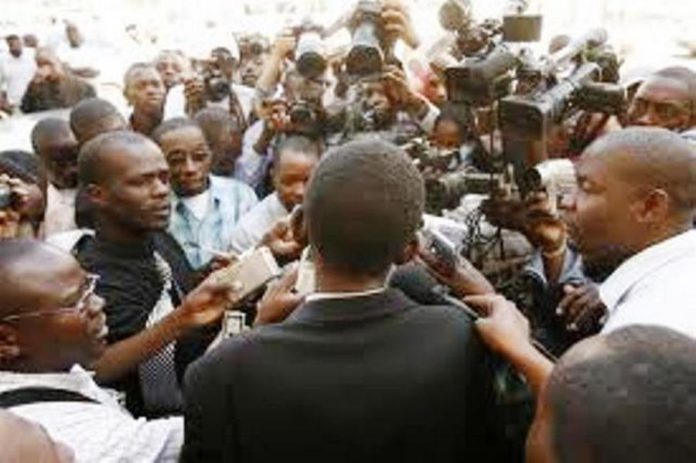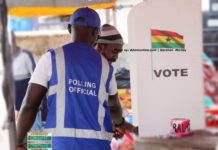
Rector of the Ghana Institute of Management and Public Administration (GIMPA), Professor Philip Ebow Bondzi-Simpson, has charged journalists in Ghana and the African continent as a whole, to be professional on their reportage on domestic and continental issues.
He said this while addressing the opening ceremony of a two-day training programme organised by the African Centre of International Criminal Justice (ACICJ) at the GIMPA Law Faculty for journalists.
Professor Bondzi-Simpson, addressing the delegation from 10 African countries, emphasised the role of journalists on issues of violence on the continent.
READ ON:l ‘Game of Thrones’ star pressured to appear nude in post-‘GOT’ movie roles
“Giving regard to issues of violence that have occurred on the African continent in recent past such as in Burundi and the role journalists have played in the occurrence or otherwise of these crimes, it is time for media practitioners to pay greater attention to the way and manner they go about their profession.
“Journalists have had a significant role in either igniting or dousing the conflagrations,” Prefessor Bondzi-Simpson said.
He proceeded to ask some rethorical questions, “What do we report and how do we report? Do we analyse? Do we sensationalise? Do we trigger or do we educate, heal and restore?
“Journalism definitely is critical to how society will run and unfold and an appreciation by the practitioners and the students of journalism is critical,” the GIMPA Rector added.
The Netherlands Ambassador
The training programme, titled ‘International Criminal Law and Justice: An Overview,’ was put together by the ACICJ (GIMPA) in collaboration with the Royal Netherlands Embassy in Ghana.
In his message of support, the Ambassador of the Netherlands to Ghana, Ron Strikker, indicated that with the Netherlands being the host country of the International Criminal Court (ICC), the Embassy finds it very necessary to support every effort to educate journalists who are the watchdogs of society as far as impunity is concerned.
ALSO: Man returns home to meet wife’s lover in his room wearing a skirt
He charged the journalists participating in the training programme to take full advantage of same and learn everything they ought to know about the ICC in order to use the knowledge to influence their reportage on the prosecution of international crimes.
The training programme
The two-day training programme will have eight sessions, the last of which will be a panel discussion on the topic, ‘Cyber Security, Crime, and Jurisdiction in Cyberspace: The Future of International Crime.’
The panelist for the discussion will include Elvis Kofi Hovor, a Cyber Security & Crime Expert, Dr Yankson, Head of the Cyber Crime Unit of the Ghana Police Service, Dr Nnenna Ifeanyi-Ajufo, Lecturer at the Faculty of Law, Lancaster University, Ghana, Jean-Jacques Badibanga, Senior Trial Lawyer of the International Criminal Court and Dahirou Sant-Anna, International Cooperation Advisor of the ICC.
The remaining sessions will amongst others consider topics such as ‘Covering International Crimes: The Role of the Media’, and ‘Overview of the International Criminal Court: Structure, Jurisdiction and Preliminary Examinations’. Additionally, the remaining sessions will focus on ‘Basics of International Criminal Law and Justice: Getting to Know and Understand International Crimes and Practice at the ICC: Trials and Cases’.
READ: Another suspect in Budumburam cops killing freed
The ACICJ
The ACICJ is dedicated to growing the body of knowledge on International Criminal Law & Justice (ICLJ), its necessity and the place of Africa within that paradigm. The ACICJ was conceived as a result of the success of the International Criminal Court (ICC) & Africa Conference held at GIMPA in March, 2016.
The aim of the ACICJ is to center the ongoing discourse on Africa’s role and place in the work of the ICC as it applies to the continent.
The Centre hopes to formalise the network of conference participants as well as International Criminal Law Scholars from all over the world to sustain the conversation, engaging the greater ICLJ community, as well as serve as a focal point for ongoing research, scholarship and training on the ICC and broader ICLJ issues across the continent.






